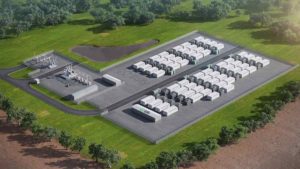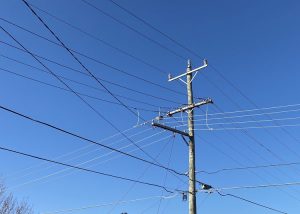At the beginning of October, the ACT became the first Australia jurisdiction to make the transition from a dirty supply of electricity, to one supplied by the equivalent of 100% renewable electricity. That might have been the easy part of the decarbonisation plan.
The territory sees its renewable electricity supplies as being crucial to driving even further reductions in its carbon footprint, and this could mean the national capital emerges as a key battle ground for the gas networks coming under pressure as governments look towards zero net emissions.
Last month, the ACT government unvieled the next stage of its strategy towards zero net emissions, and has set its sights firmly on reducing the territory’s gas use, which is now the highest source of greenhouse gas emissions for the capital and is ultimately aiming to phase it out completely by 2045.
This will be no simple feat, as the ACT has one of the highest penetrations of mains gas connections. The switch to wind and solar did not encounter much resistance because the ACT has no incumbent coal or gas generation industry. But it does have a strong incumbent in gas networks.
And under the ACT’s Territory Plan, the document that dictates how developments in the ACT must occur. Significantly the territory plan dictated that all residential developments in the ACT must be connected to the mains gas network.
What would this mean for households looking to go without gas? The requirements of the territory plan as it currently stands would mandate the costly roll out of gas infrastructure that might never be used. An unnecessary cost burden for ACT households who would ultimately pay for the roll out.
This was the very dilemma faced by the Ginninderry development, which is aiming to be the first purely electric residential development in the ACT, and therefore, the first suburb powered purely by 100% renewable electricity.
The ACT Government arranged an exemption for Ginninderry, ensuring the suburb could go without gas. ACT climate and energy minister Shane Rattenbury recently announced that the requirement will be lifted for all future developments.
This is expected to help households avoid the added costs of a gas network deployment, but it is likely to upset the gas network operator, Evoenergy, a 50-50 joint venture between the ACT Government and Jemena. In turn, the ownership of Jemena is split between the State Grid Corporation of China (with a 60% stake) and Singapore Power (40%).
Such a move undermines the core business model of gas network operators, that operate on the guaranteed returns generated by investments in network infrastructure.
There are limited incentives for a company like Evoenergy to support households transition away from gas and on to the electricity network, as it would undermine the value of the gas side of its distribution business.
When ACT energy minister Shane Rattenbury was asked about the competition priorities between the ACT government and the utilities it part-owns, the minister conceded there was a “tension“.
While Evoenergy has helped facilitate the ACT’s transition to 100% renewable electricity, by handling the payments made with the large-scale wind and solar projects supplying the national capital, it has been reticent to support a wider transition away from gas.
“If it only owned the electricity network and had no affiliation with fossil fuel interests, then it would happily snatch customers from gas networks,” executive director of Zero Emissions Australia, Matthew Wright told RenewEconomy.
“But it wants no fuel switching away from planet-destroying gas, because that hits the bottom line.”
“Fuel-switching to renewables could cost billions of dollars in asset write downs for a Jemena left with stranded gas assets as its market evaporated.”
It won’t just be Evoenergy, or Jemena, who face a fundamental challenge to their business models, it’s a threat faced by all gas network operators who will find it difficult to transition their businesses from supplying natural gas to one as a supplier of a zero-emissions energy source.
Renewable gas, while promising, is still far off from supplying a market that matches the scale of the domestic gas market.
Jemena has commenced a demonstration project for the production of hydrogen gas in portions of the Sydney gas distribution network. The company announced in July that it would install a 500kW electrolyser in Western Sydney as part of a larger two-year project that has received backing from ARENA.
But unlike electricity, there are technical barriers that make it difficult to undertake a straight substitution of an energy supply based on fossil fuels with a zero-emission renewable alternative.
Renewable hydrogen appears to be the prime candidate to emerge as a ‘green gas’ alternative. But hydrogen cannot be used in the gas appliances currently in homes and businesses. The characteristics of hydrogen gas are so different to that of conventional natural gas, that most appliances will require substantial modification, if not outright replacement, to work with hydrogen.
Jemena, and others, are experimenting with the mixing of hydrogen into the mains gas supply. But due to these technical issues, they are constrained to replacing just 5 to 10 per cent of the gas supply with hydrogen.
Biogas allows for a like-for-like substitution of gas, but is unlikely to be produced at the scale needed to provide a complete replacement.
Owners of gas distribution networks, like Jemena, may be facing an existential threat from moves to fully decarbonise our economies. But the lessons learnt in producing renewable gas, like hydrogen, are likely to open up substantial opportunities in the future, particularly with an emerging export market for zero-emissions fuels.
This will mean there will be a growing tension between publicly owned gas distributors and the government owners who are leading a transition towards zero emissions.
“Jemena will stop at nothing to have everyone in Australia connected to their gas pipelines,” Wright added.
“Evoenergy is supposed to be a regulated company, but the regulators have done nothing to stop the company putting its own fossilised vested interests ahead of customers.”
Early renewable gas producers are likely to gain a first-mover advantage if Australia is able to realise the enormous potential that a global green hydrogen market may present to Australia.
ARENA recently estimated a future international market for hydrogen could deliver $1.7 billion to the Australian economy, and 2,800 jobs by 2030.
“In Australia, we have all the necessary resources to make hydrogen at scale: wind, sun, coal, methane, carbon sequestration sites and expertise.” Australian chief scientist Dr Alan Finkel said.
“It’s simply never been commercially viable. Now, the economics are changing.”
Finkel is expected to deliver a final national strategy for hydrogen before the end of the year.







